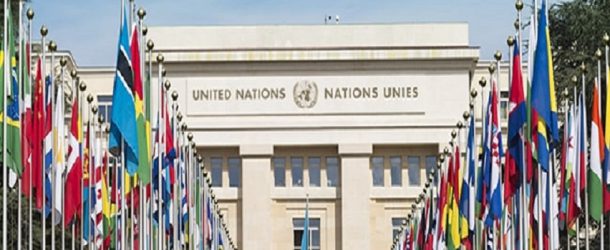Recent terrorist attacks by Hamas on Israeli civilians and Israel’s harsh reaction to this by cutting electricity, water, and fuel supply to Gaza, where Hamas is located, shows how dangerous political problems could become for children and civilians in general during times of war and crisis. As usual, hatred leads to more hate and strengthens radicals on both sides; while Hamas gains popularity in the Islamic world by bringing the Palestinian cause to the agenda of Muslim countries after many years, ultranationalists and ultra-Orthodox groups in Israel also find a comfortable ground in Israeli domestic politics to defend radical solutions to decades-old Palestinian problem such as forcefully sending all Palestinians to Jordan, Egypt, etc. and to sweep away the Palestinian State completely from the region.
Hamas’ attack and Israeli response led to a polarization between pro-Israeli and pro-Palestinian states as well. While the United States as well as all Western bloc countries sided with Israel immediately and condemned terrorism, some countries including the Islamic Republic of Iran openly supported Hamas and the Palestinian Authority. In many Arab/Islamic countries, on the other hand, pro-Palestinian demonstrations were organized. Latin American and African states also gave different reactions as some of them openly supported Israel and condemned Hamas with heavy criticism, whereas some others criticized the Palestinian side with a softer rhetoric, while some Latin American leaders including Columbian President Gustavo Petro supported Palestine. Moreover, some other countries like Türkiye (Turkey) invited both sides to sobriety and tried to act like a moderator. While Brazil invited the United Nations (UN) Security Council to an urgent meeting after the attack, so far, the Council has not made any resolution or statement on newly developing conditions.
The ambivalent position in many countries’ foreign policy on this issue stems from the fact that they were not able to establish a foreign policy based on ideals and values until now and acted solely on national interests, which will always create problems between different states since interests are varying from state to state. On the contrary, states acting on the basis of international law could take a position easily, without any hesitation, since their foreign policy is navigated through principles. This principle for sure should be based on the implementation of UN decisions.
However, a problem appears at this point when the UN Security Council’s structure does not represent the current-day political power equation correctly and even the architect of this system, the United States (U.S.) might act against the previous binding resolutions. It is a fact that the composition of the UN Security Council reflects the power dynamics of the late 1940s and the 1950s, but the contemporary political balance is completely different. But we also know that the UN could reform itself and make strategic decisions such as including the People’s Republic of China to replace Taiwan in the 1970s. In that sense, Turkish President Recep Tayyip Erdoğan’s quest for reforming the UN becomes reasonable and even necessary to solve political problems and end widespread violence.
The current UN Security Council is composed of 5 permanent members: the U.S., the Russian Federation, China, the United Kingdom, and France. There are also 10 temporary members elected by the General Assembly in every 2 years. But as these 5 countries stay within the Council, they have a chance to control all political disputes and make decisions (resolutions) that will help them rather than helping other states or the international system. Questions arise at this point when there is not even a single Muslim, Latin American, or African country in the UN Security Council and Muslims are left unrepresented. Similarly, a gigantic country like India and a large religious group, Hindus, are left outside of the decision-making process. So, is not it rational for 5 permanent member countries to work on a reform plan for the UN to include other influential states in the Council in order to better respond to political, economic, and social problems of the contemporary world?
My answer would be definitely “yes”, but it seems like there is not much support for reforming the UN within the Security Council. These states and their rulers are not ashamed of not being able to solve earthly problems and allow the continuation of terrorism, wars, ethnic conflicts, etc. But we, human beings, are ashamed on their behalf as we want children to continue to live safely and happily in all countries. The way to realize this is to apply UN decisions in cases like Palestine where there is a realistic and viable solution and to reform the UN by including new influential countries such as the European Union (EU), Türkiye, Iran, India, South Africa, Nigeria, Brazil, etc. for better reflecting the current-day power equation and to solve other problems such as the Cyprus Dispute, Kashmir Conflict, Taiwan, etc. with new resolutions/decisions.
It is a fact that we have to reform the UN because otherwise the system will collapse at one point and all states will begin to pursue their own national interests solely, which would lead to an international ‘state of nature’ in the 21st century. To prevent this, leaders of the 5 permanent members should react quickly to stop massacres, terrorism, etc. instead of thinking of the profit of the arms companies. UN’s mission is not to make companies richer but rather to make people safer. Save the UN before it is too late…
Assoc. Prof. Ozan ÖRMECİ



















































